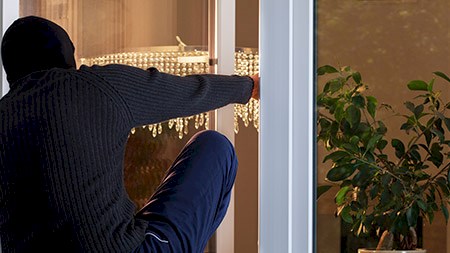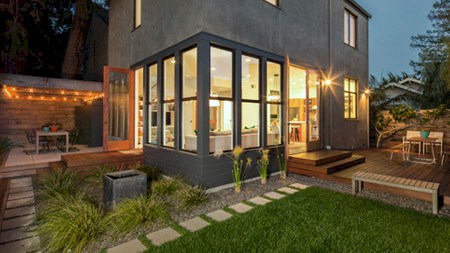Moving to a secure, gated complex does not mean that you will be totally safe from crime. Find out how you can make your complex safer.
Crime has always been an issue in South Africa and if the latest statistics released by the South African Police Service (SAPS) are anything to go by, it will continue to be an issue for some time to come.
The following are just a few of the statistics recently released by the SAPS:
- Aggravated robberies have increased 8.5% to 129 045 incidents
- House robberies are up 5% to 20 281
- Vehicle hijackings have increased 14% to 12 773
- Residential burglaries (not to be confused with house robberies which involves armed gangs confronting people while they are at their home) decreased by 2.3% to a total of 253 716 incidents
- Commercial crime decreased by 12%. (Note: only 16% of fraud victims report incidents to the police)
- An increase in stock theft, theft out of cars and shoplifting was also reported
- Theft of motor vehicles reportedly decreased by 2.7%. It is thought that the reason for the drop is due to decreasing reporting rates rather than an actual drop in theft
- The official murder rate currently stands at 17 805 murders (or 49 murders per day) which is up 4.6% from the previous year. South Africa’s murder rate is more than five times higher than the 2013 global average of 6.2 murders per 100 000.
- Attempted murder cases increased by 3.2% to 17 537
It must be noted that at the time of their release, the statistics were already at least six months out of date. It’s also worth pointing out that not all cases are reported or properly recorded. That said, it could be argued that the statistics are illustrative of what is happening on the ground. It’s not a pretty picture and it makes for gloomy reading but it’s better to be aware of what is happening so that the necessary precautions can be taken.
Your choice of home and the area in which it is situated plays an important role in this equation. With this in mind, many home buyers now opt for homes in security complexes. Unfortunately, moving to a ‘secure’ complex is no guarantee that crime will not follow or that illicit activity won’t occur in your back yard. As such, you shouldn’t let your guard down simply because you’ve moved to a complex. It’s also important to be aware of the laws relating to such issues and what steps can be taken to curb criminal activity within complexes.
Carryn Melissa Durham of Sectional Title Specialists ‘Paddocks’ explains that there are two legislative provisions that relate to criminality in sectional title schemes.
Section 37(1) (n) of the Sectional Titles Act 95 of 1986, deals specifically with the functions of the body corporate: “A body corporate referred to in section 36 shall perform the functions entrusted to it by or under this Act or the rules, and such functions shall include to ensure compliance with any law relating to the common property or to any improvement of land comprised in the common property.”
Prescribed management rule 68(1) (ii), deals with the statutory and general duties of the owner: “In addition to his obligations in terms of section 44 of the Act, an owner shall not contravene, or permit the contravention, of any law, by-law, ordinance, proclamation or statutory regulation, or the conditions of any licence, relating to or affecting the occupation of the building or the common property, or the carrying on of business in the building, or so contravene or permit the contravention of the conditions of title applicable to his section or any other section or to his exclusive use area or any other exclusive use area.”
Notes Durham: “The trustees are tasked with administering the common property and doing all things reasonably necessary for the enforcement of the scheme rules. The body corporate can adopt rules that indirectly address criminal activity such as access rules. Furthermore the body corporate can adopt a penalty rule so that the infringement of a rule results in the imposition of a fine.”
Adds Durham: “It is important to note that the trustees are not expected to be policemen. Where a resident is involved in a criminal act or actions, the trustees and members of the body corporate should try to obtain proof thereof, and report it to the police. In this regard the trustees could initiate the process for the installation of CCTV cameras on common property. The CCTV cameras would serve two functions in that it could hopefully assist in the prevention of the crime, or the recording of the crime for evidentiary purposes.”
Durham adds that communities that have adopted a neighbourhood watch and that are actively involved in the safety and security of their residents have experienced a reduction in criminal activity.
“It is for this reason that I recommend that all the residents (trustees, owners and tenants) keep a close eye on strangers accessing the scheme, suspect behaviour and irregular activities. With this in mind, residents could send warning alerts to a community forum such as a WhatsApp group and contact the local policing authority.”
Ultimately, although it’s impossible to predict when, where and how crime will occur, there are measures that can be taken to prevent the chances of becoming a victim of crime within your complex. As the adage goes, “forewarned is forearmed.”





